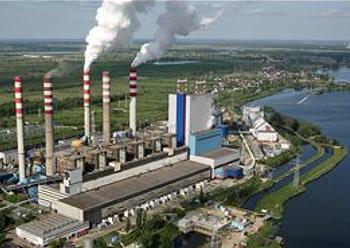
LYON, France, August 12, 2013 (ENS) – Securities fraud, insider trading, embezzlement, money laundering and cybercrime – the intangible nature of the global carbon trading markets puts them at risk for exploitation by criminal networks, according to a new law enforcement guide produced by Interpol.
The world’s largest international police organization has just issued “The Interpol Guide to Carbon Trading Crime,” which examines the areas within the industry that could be manipulated by criminals. It assesses the current vulnerabilities of the carbon market and provides information to support national authorities in establishing adequate policing measures.

Carbon trading is the world’s fastest growing commodities market, with its current value estimated by the World Bank at around US$176 billion. There are no physical commodities, instead the market trades credits for offsetting the emission of the greenhouse gas carbon dioxide with the aim of limiting global climate change. Interpol says it is this unquantifiable market combined with the large amounts of money invested and a lack of oversight that makes it vulnerable to criminals.
“It is imperative that the carbon trading markets remain secure from fraud, not just to protect financial investment, but also because the global environment depends upon it,” said Andrew Lauterback, senior criminal enforcement counsel at the U.S. Environmental Protection Agency and chair of the Interpol Environmental Crime Committee.
“The Interpol Guide to Carbon Trading Crime is an important resource for all organizations and agencies committed to protecting our environment and developing a cohesive global response to this crime,” said Lauterback.
An initiative of the Interpol Pollution Crime Working Group, the new carbon trading guide was produced with contributions from partners including Environment Canada, the Norwegian Agency for Development Cooperation, the Netherlands Government and the U.S. EPA.
The guide includes case studies from around the world where greenhouse gas accounting firms, national authorities operating in under-regulated jurisdictions, and individuals or companies claiming to offset emissions in return for investment have cut corners, falsified information or received bribes.
The European Union Emission Trading System, ETS, was the victim of fraudulent traders over 18 months during 2008 and 2009. This resulted in losses of roughly five billion euros for several national tax revenues. The EU police agency Europol estimated that in some countries, up to 90 percent of the whole market volume was fraudulent.
In Europol operations during 2010, several hundred offices all over Europe were raided and more than 100 people arrested.
In December 2010, weeks after the Italian Power Exchange halted all trading in carbon credits due to a high number of abnormal transactions, the Italian Guardia di Finanza carried out raids on 150 companies in eight regions of Italy.

Also in 2010 authorities in France, Germany, Spain, United Kingdom and other countries conducted numerous operations against criminal networks involved in carbon credit fraud. The biggest operation, initiated by Germany in late April 2010, saw more than 2,500 officers involved across Europe and in non-EU countries.
In January 2011 national governments struggled to strengthen security quickly after carbon trading fraud was uncovered in the ETS. The European commission banned “spot” trading in carbon on local exchanges after a cyber attack on the Czech, Austrian and other national markets.
Following a 2012 feasibility study conducted by Rand Corporation Europe, the European Commission decided to establish a European Cybercrime Centre, EC3, at Europol. The center will be the focal point in the EU’s fight against cybercrime, contributing to faster reactions in the event of online crimes. It will support the 28 Member States and the European Union’s institutions in building operational and analytical capacity for investigations and cooperation with international partners.
EC3 officially opened on January 1, 2013 with a mandate to tackle cybercrime such as online fraud, online child sexual exploitation and cybercrime affecting critical infrastructure and information systems in the European Union.
“Crimes that harm our environment have a wider impact on the health and safety of society as a whole, and therefore must be investigated and the perpetrators punished,” said Interpol Secretary General Ronald Noble.
“Interpol will continue to fight the criminal networks which endanger our precious environmental resources and use their ill-gotten proceeds to fund other criminal activities,” said Noble.
With eight carbon credit trading companies operating on the European Union Emission Trading Scheme recently shut down for malpractice, the Interpol guide seeks to generate an international law enforcement response to these crimes.
The guide’s key recommendations include raising awareness of carbon trading crimes amongst law enforcement personnel and improving coordination and communication channels among law enforcement from different countries to share information on the trades in carbon credits.
To that end, police from around the world will focus on carbon credit trading crimes at this year’s annual Europol-Interpol Cybercrime Conference to be hosted by Europol in The Hague, the Netherlands, on September 24-25.
David Higgins, manager of Interpol’s Environmental Crime Programme, said, “It is sad to see criminals using fraud and other crimes to make profit out of a commodity that was created to protect the environment. It is not just the financial harm it causes investors, but this criminal activity risks seriously undermining the environmental integrity of the carbon markets globally.”
Higgins said, “Interpol is supporting governments which are in the process of establishing or regulating the carbon markets to put an end to these types of crimes.”
Copyright Environment News Service (ENS) 2013. All rights reserved.
© 2013, Environment News Service. All rights reserved. Content may be quoted only with proper attribution and a direct link to the original article. Full reproduction is prohibited.
